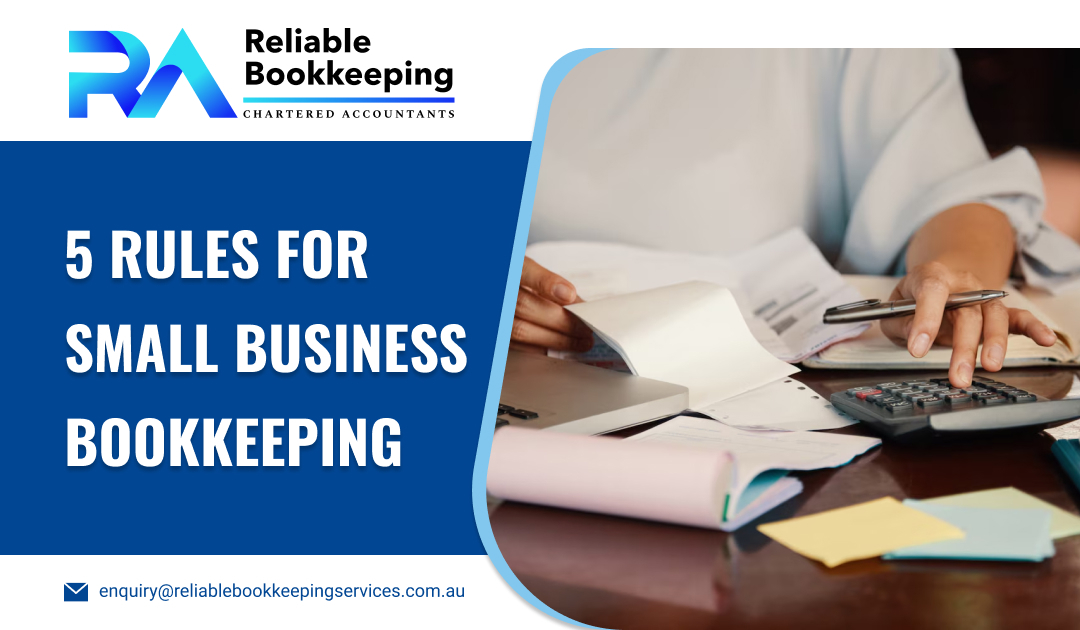Managing business records is crucial to meeting super, tax, and employer obligations. As a business owner, you must understand what records are required for your business and ensure these records are up-to-date and accurate. That is why bookkeeping for small businesses is important. Now, let’s explore why you need to maintain business records and rules for business record-keeping. Let’s get started.
Why Do You Need to Keep Business Records?
You need to keep records of all financial transactions relating to your superannuation, tax and registration affairs as you start, sell, change or close your business. It includes:
- any documents associated with your business’s income and expenses
- any documents involving details of any choice, estimate, determination, election or calculation you make for your business’s super and tax affairs.
To meet your record-keeping requirements and avoid common mistakes, ensure you understand what records are required for your business and complete record-keeping practices a part of your business activities. As your business grows, you may have to review what records you should keep. If your business doesn’t comply with record-keeping requirements, there could be legal consequences. Maintain business records is crucial for tax matters because small business tax accountants need these records at the time of tax return lodgment.
5 Rules for Business Record-Keeping
The following are 5 rules for business record-keeping to meet super, tax, and registration obligations:
- You have to maintain all records related to starting, running, selling or closing your business that are relevant to your super and tax affairs.
- If your expenses relate to personal use and business use, ensure you have clear documents to show business expenses.
- Accurate information in your records shouldn’t be changed and needs to be stored to protect the information from being damaged or changed.
- The ATO may ask you to show them that you have suitable safeguards in place.
- You need to reconstruct your original data in case the record-keeping system changes over time.
- You are required to maintain your business records for 5 years.
- The retention period for each record is generally 5 years, starting from when the record was prepared, and obtained, or when the related transactions or acts were completed, whichever is later. However, there are exceptions where the law specifies a different start for the 5-year retention period, such as:
- For fringe benefits tax (FBT) records, the 5 years start from the date of lodging the FBT return.
- For super contributions for employees, the 5 years start from the date of the contribution.
- For super fund choice records for employees, the 5 years start from the date of employee engagement or when an employee is offered, chooses, or changes their fund.
- Some records need to be kept for longer than 5 years, especially those covering the review period for an assessment that uses information from that record.
- Additionally, all information about routine procedures for destroying digital records should be retained.
- The retention period for each record is generally 5 years, starting from when the record was prepared, and obtained, or when the related transactions or acts were completed, whichever is later. However, there are exceptions where the law specifies a different start for the 5-year retention period, such as:
- You must show the ATO your records if the ATO asks for them.
- Ensure you keep information about your business’s record-keeping system so the ATO can check if it meets the record-keeping requirements.
- Ensure that the information on the record includes accurate details to meet your superannuation, tax, and employer obligations.
- If you store your records and data digitally
- using an encryption system – provide information and encryption keys about how to access the data when asked. You need to ensure that the ATO can extract and convert your data into a standard data format.
- Using passwords to protect your business records – provide information about how to access your data
- ensure your data is identifiable or indexed when you store it. The ATO may need to extract it and use a text-search system or an indexing to check it.
- Your business records should be in English or must be easily converted to English.
When it is a matter of bookkeeping, bookkeepers are responsible for managing business bookkeepers. Therefore, to answer your question ‘what does a bookkeeper do’, we can say that bookkeepers are responsible for:
- recording financial transactions
- preparing financial reports
- preparing bank reconciliation statement
- invoicing
- accounts receivable
- accounts payable, etc.
Conclusion
If you are a business owner, it is crucial to maintain business records to meet record-keeping requirements. You can ask your bookkeeper to manage business records for you while getting Reliable Bookkeeping Services.

